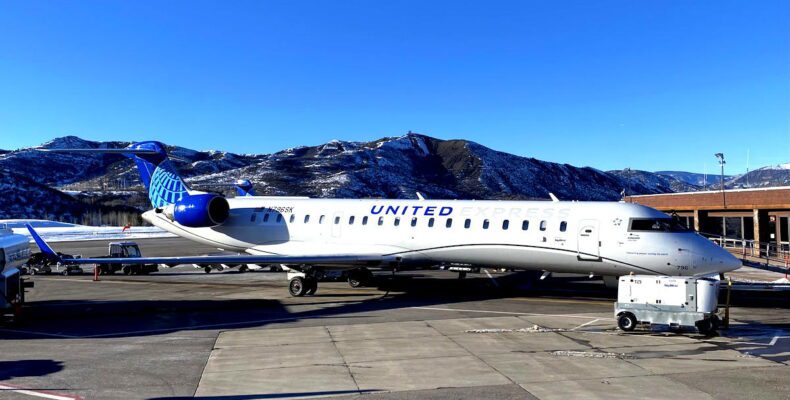United Airlines: A Heated Toddler Experience
Meet a dad on a digital mission to have his grievances with United Airlines echo through the halls of the internet. He’s got a bone to pick, and rightfully so, after a less-than-pleasant flight experience. Commonplace or not, should we just shrug it off?
Nightmare Flight with a Toddler
Picture this: A Maine family wrapping up their 10-day getaway with United Airlines. Their final leg of the journey, on June 29, 2025, took them from Chicago to Portland, courtesy of a United Express regional jet. Frustrated beyond measure, they’ve vowed never to grace United’s flights again. They’re even tossing their premium credit card from the airline and are calling out for some governmental action.
Dad aired his woes on social media and caught the attention of many. They also snagged a CBS News Chicago interview. Nothing like a little face time to make it official, right?
This whole debacle? It boils down—quite literally—to the heat inside the airplane during boarding. Chicago was serving up a sweltering day, while the plane’s APU decided to play hooky. Here’s a slice of what he detailed in his online journal:
“As passengers trickled in, the temperature rose in tandem. Chicago flaunted its 90°F prowess, with a heat index of 95. Add in the tarmac’s sizzling bliss, and we were almost literally baked. My smart device raised the alarm—a rising heart rate. Thirty sweaty minutes had passed without any momentum towards takeoff. I cranked open all our air vents and peeled off layers from my toddler. If I’m sweltering, he’s undoubtedly turning into an oven-baked human.”
“Our young one communicates through an intricate series of gestures, a symphony of primitive grunts, and cries. He began his version of summer protests. His little legs were an ode to heat. The flight attendant chimed in:”
“‘Please, open all air vents; it might just make our misery slightly more tolerable. Apologies—there’s not much else I can share. I’m just the messenger.’”
“Cranking those vents only intensified our situation—no A/C meant the only current was that of blistering heat. Dwindling water became a tool—drops here and there, a fanning attempt at cooling my son. But his fussiness crescendoed into squirmy artistry. I hit the call button. Soon, a flight attendant appeared.”
“‘I’ve started fearing for my son’s wellbeing. At 15 months, he can’t maintain his body temperature. Either we get off, or some action to cool him is necessary.’”
“The attendant replied: ‘Other passengers are reporting dizziness. I’ll alert the captain.’”
“The clock ticked past 45 minutes since boarding as communication delay played its part. Eventually, another attendant dispensed some ice for my son before swiftly retreating. I cautiously placed it on his back—not directly on the skin. Bewilderment was our shared companion as I pulled out my phone for a social media rescue mission amidst this heat wave.”
“Amid this impromptu post-composition, a voice echoed:”
“‘Prepare for takeoff.’”
“Finally, cold air poured in as engines roared, ushering in overdue relief for our son—despite United. Throughout this ordeal, no water or beverages found their way to us, leaving the airline’s reasoning lost in boarding woes unaddressed.”
He continued, “As a precaution, my wife—an actual physician—employed her proficiency in ensuring our son’s health. It demanded a joint effort.”
“United dismissed a physician’s and a parent’s plea, endangering everyone’s wellbeing in the cabin.”
United Airlines offered them $1,050 in vouchers and credited 10,000 MileagePlus miles. But in a twist, Dad received a call from Global Services, interpreting his pleas as entitlement, “seeking a free ride?”
Are We Blind to Commonplace Snafus?
To break it down, the regional jet’s APU—crucial for cabin temperature regulation on the ground—was kaput. A forgivable glitch that affects airlines globally. Everyone rostered in this theatre of recurrent issues.
Honestly, airlines maintain flight itineraries irrespective of APU maladies, and United isn’t the lone airline rehearsing this script. American? British Airways? Emirates? They’re all dues-payers in this saga. Securing $1,050 for APU malfunction? Sensational!
Yet, frequency doesn’t equate to acceptability, does it? The father’s requests highlight potential reforms:
“Beyond my family, there’s a bigger picture. I renounce United. Not everyone enjoys that liberty—I might join the ranks one day.”
“Here’s my ask: federal scrutiny.”
“A challenge: United—a corporate behemoth enriched by public subsidies—must face accountability.”
“An appeal for:”
- Federal cabin temperature regulations
- Tactic-specific tarmac idling time limits
“We were involuntarily houseguests aboard—by corporate titans valuing profits. Restoration of power balance is crucial. These giants forget their dependency on us.”
His argument prompts thought. Regulations exist for tarmac waiting durations, so shouldn’t there be temperature controls? But practically, how would enforcement unfold? Temperature measurement apparatus boarding planes, with limits implicating deplaning and maintenance calls? Or should potentially benign APU failures ground aircrafts, even absent significant thermal escalation?
In fairness, stepping off was always an option if conditions were hazardous. Deplaning and advocating reseating rights can counter apprehensions of improvised imprisonments.
Conclusive Thoughts
So here it is—a family’s unwanted heat saga aboard a United Express aircraft in Chicago, without air-assisted shield. They’re pressing potential culpability charges on United, amassing a roster of qualms.
The family’s plea reverberates with preserving passenger comfort even amidst APU turbulence on sultry days. Perhaps, regulatory conversations should materialize. Nevertheless, United isn’t Isaac Newton discovering gravity here; this circus is universal; any airline might fumble similarly.
Your verdict? How do we dissect the airline accountability playbook for circumstances of this degree?
